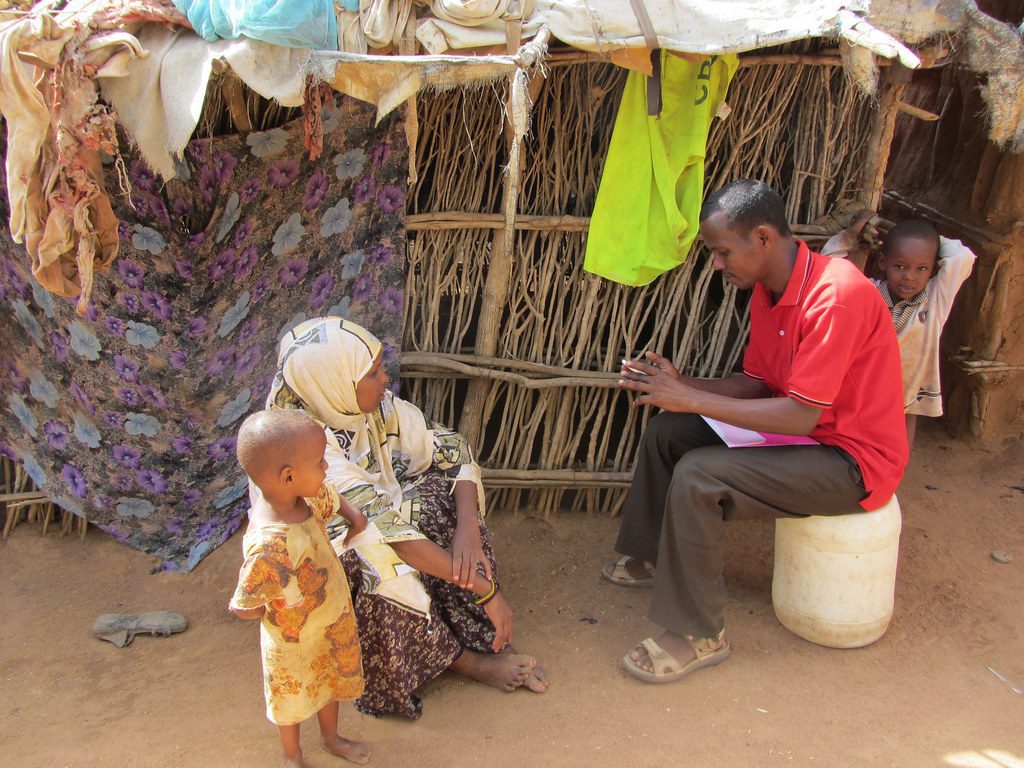Introduction
Welcome to our comprehensive guide on baseline survey services in Uganda! If you’re curious about what a baseline survey is and why it’s crucial for your projects, you’re in the right place. We’ll take you through the essentials, focusing on the importance of these surveys right here in Uganda.
Overview of Baseline Surveys
What precisely is a baseline survey, then? Consider it the beginning of your project. Before beginning any significant operations, a thorough investigation is carried out. This survey collects important information on a range of project-related topics to assist you in understanding the present state of affairs. As your project develops, you can precisely monitor changes and impacts thanks to the baseline provided by this early data.
Importance of Baseline Surveys in Uganda
In Uganda, where a variety of social, economic, and environmental factors influence project success, baseline surveys are particularly important. Having trustworthy baseline data is essential whether you’re working on an environmental protection project, a health program, or a community development project. It supports realistic goal-setting, well-informed decision-making, and convincing stakeholders of the value of your job.
The demand for accurate and trustworthy data is always rising in Uganda. This is the situation in which baseline survey services in Uganda are needed. These services offer the know-how and resources required to carry out exhaustive and precise baseline surveys, guaranteeing that your project gets off to a good start. Regardless of whether you represent a national, international, or local NGO,, a government agency, or an international organization, investing in these services can make a significant difference in achieving your project’s objectives.
What is a Baseline Survey?
Definition and Purpose
Now let’s get down to business: A baseline survey: what is it? In short, before beginning a project, a baseline survey is a preliminary investigation that collects crucial information on the existing condition of a specific area or community. Many factors that represent the situation on the ground are captured by this survey. The major goal is to establish a standard against which subsequent modifications can be evaluated, giving you a clear understanding of what needs to be improved and the overall effectiveness of your efforts.
What Does a Baseline Survey Do?
What then is the true purpose of a baseline survey? A baseline survey allows you to gather important data regarding the needs and current state of affairs in your target area. Depending on the subject of your study, this data may include demographics, economic activity, health status, environmental conditions, and more.
For instance, a baseline survey would collect information on the health problems that exist now, the accessibility of medical services, and the community’s health behaviors if you were organizing a health intervention in a remote Ugandan village. You can use this information to create successful interventions, establish reasonable goals, and comprehend the situation from the outset.
Similar to a house’s foundation, baseline surveys offer the fundamental framework upon which other structures are constructed. Accurate baseline data allow you to monitor advancement, make necessary adjustments, and demonstrate the impact of your project to stakeholders.
In Uganda, where diverse challenges and opportunities exist, having a solid understanding of the initial conditions is crucial. This is where baseline survey services in Uganda come in handy. These services offer the expertise to conduct thorough and reliable baseline surveys, ensuring you have the right data to kickstart your project and drive meaningful change.
The Importance of Baseline Surveys in Monitoring and Evaluation
Baseline surveys are essential for monitoring and assessing projects because they serve as the building’s foundation. They offer the vital foundation upon which all else is built. Let’s examine the importance of these surveys.
What is the Purpose of a Baseline Survey in Monitoring and Evaluation?
Before any interventions are made, the main goal of a baseline survey in monitoring and evaluation is to gather detailed information about the project area’s existing condition. This first data gathering aids in creating a baseline. Having this baseline data will help you monitor changes, keep tabs on developments, and assess the project’s overall impact over time. Determining without a benchmark makes things difficult to determine what has changed and to what extent your project has made a difference.
What is the Main Purpose of Baseline Assessment?
The main purpose of a baseline assessment is to gather detailed information that will inform your project planning and implementation. This assessment helps identify existing conditions, needs, and resources in the project area. By understanding these factors, you can design more effective interventions and set realistic targets.
In Uganda, where diverse communities and varying conditions can impact project outcomes, baseline assessments are invaluable. They provide the data needed to tailor your approach to the specific context of each project area, ensuring that your efforts are both relevant and impactful.
For organizations looking to make a real difference, investing in baseline survey services in Uganda is a smart move. These services offer the expertise needed to conduct thorough assessments, providing you with the reliable data necessary to guide your project from start to finish. By starting with a solid baseline, you set the stage for successful monitoring, evaluation, and ultimately, achieving your project goals.
Objectives and Uses of Baseline Surveys
Any project’s success depends heavily on baseline surveys, but this is especially true in Uganda’s complex and dynamic environment. Let’s examine the main goals and rationale behind gathering baseline data, emphasizing the importance of baseline survey services in Uganda.
What are the Major Objectives of Conducting a Baseline Assessment?
The following are the main goals of performing a baseline assessment:
- Determine a Starting Point: Before any project operations start, baseline surveys give a clear picture of the current conditions. This aids in comprehending the initial state of certain project-related indicators.
- Identify Needs and Gaps: Baseline surveys assist in pinpointing the precise needs and gaps in the target area by obtaining extensive data. This is necessary in order to customize interventions that are effective and pertinent.
- Set Realistic Goals and Targets: You can create attainable goals by using baseline data that is accurate. This guarantees that the goals of the project are based on reality and can be successfully tracked over time.
- Monitor and Evaluate Progress: The project’s impact and progress can be monitored using baseline data as a reference. This is essential for tracking, assessing, and implementing the required changes to enhance results.
Purpose of Collecting Baseline Data
Gathering baseline data is essential for a number of reasons:
- Informed Decision-Making: The basis of informed decision-making is dependable data. The data gathered from baseline surveys is used to inform strategic decisions and effective resource allocation.
- Measure Impact: You must present quantifiable results in order to prove the project’s efficacy. The impact of the project can be demonstrated by comparing pre- and post-intervention conditions using baseline data.
- Improve Accountability: Baseline data improves accountability for donors, beneficiaries, and stakeholders. It demonstrates a dedication to openness and research-based procedures, building trust and credibility.
- Optimize Interventions: Knowing the starting conditions facilitates the creation of precisely targeted interventions to fill in the gaps and meet the demands that have been identified. This makes it more likely that intended results will be obtained.
In Uganda, development initiatives tackle an extensive array of social, economic, and environmental concerns, making high-quality baseline data indispensable. Through the utilization of baseline survey services in Uganda, entities can guarantee that their projects are grounded in precise and pertinent data. This enhances the beneficial effects on communities and environments while also enhancing the effectiveness of interventions.
Types of Data Used in Baseline Surveys
When it comes to baseline survey services in Uganda, understanding the types of data used is crucial. Let’s dive into the three main categories: qualitative data, quantitative data, and mixed methods.
Qualitative Data
The depth of comprehension is the central theme of qualitative data. It focuses on the “how” and “why” of a certain circumstance. Open-ended survey questions, focus groups, and interviews can all provide qualitative data for baseline survey services in Uganda. Rich, in-depth insights are offered by this kind of data, which aid in the explanation of patterns and behaviors seen throughout the survey.
Quantitative Data
On the other side, quantitative data is all about statistics and numbers. By producing numerical data or data that may be converted into useful statistics, it is utilized to quantify the issue. Quantitative data could include structured surveys with closed-ended questions in the context of Uganda’s baseline survey services. This would enable statistical analysis and the finding of trends and correlations.
Mixed Methods
Mixed methods are the ideal technique when there is a combination of both quantitative and qualitative data. This method offers a thorough view by utilizing the advantages of both data kinds. A more thorough analysis is possible when mixed methodologies are used in Uganda’s baseline survey services. While quantitative data can show broad trends, qualitative data can offer context and a deeper understanding.
Organizations can obtain thorough information that is both broad and deep by utilizing these kinds of data in baseline survey services in Uganda. This ensures a well-rounded comprehension of the topic matter.
Designing a Baseline Survey
Designing a baseline survey is a critical step in any project. Whether you are working on a community development initiative, a healthcare project, or a market research study, a well-designed baseline survey sets the foundation for success. If you’re considering baseline survey services in Uganda, here’s how to get started and what you need to keep in mind.
How to Design a Baseline Survey?
Clearly defining your survey’s objectives is the first step in creating a baseline survey. What knowledge are you seeking? Understanding a community’s present situation, the frequency of a health issue, or the demands of a target market are a few examples of this. The remainder of the survey design process will be guided by your well-defined objectives.
Choose the kind of data you require next. This could be quantitative data, like figures and statistics, or qualitative data, like people’s thoughts and feelings. Combining the two tends to yield the most informative results.
Key Steps and Considerations
- Identify Who Your Target Audience Is: By whom are you conducting your survey? Ascertain that the sample you are using is representative of the larger group you are researching. This guarantees that the conclusions you draw will be true and relevant.
- Construct Your Questionnaire : Formulate inquiries that are precise, succinct, and pertinent to your goals. Steer clear of leading questions and make sure your inquiries are understandable and suitable for the culture in question.
- Pilot Testing: Try the survey on a small group of people before distributing it to the complete sample. This enables you to make the necessary corrections and assists in identifying any problems with the questionnaire.
- Data Collection Techniques: Select the techniques you’ll employ to gather data. Will you do interviews in person, over the phone, online, or a combination of these methods? Every approach has advantages and disadvantages, so pick the one that best suits your needs and available resources.
- Training Survey Enumerators: If you are utilizing survey enumerators, be sure they are knowledgeable about the survey’s goals and protocols and have received proper training. This facilitates the collection of reliable and consistent data.
- Data Management Plan : Make a plan for managing and archiving the gathered data. Make sure you have a mechanism in place for cleaning and analyzing data, and that the data is kept securely.
- Ethical Considerations : Verify that your survey respects respondents’ rights to privacy and that you obtain ethical approval, if necessary. Obtain each participant’s informed consent.
Designing a baseline survey can seem daunting, but by following these steps and considering these key points, you can ensure your survey is effective and provides valuable insights. If you need professional assistance, consider reaching out to experts in baseline survey services in Uganda. They can provide the expertise and support needed to conduct a successful survey.
What is the Cost of a Baseline Survey?
When planning a project, understanding the cost of a baseline survey is crucial. The cost of baseline survey services in Uganda can vary widely depending on several factors. These include the scope of the survey, the geographical area covered, the complexity of data to be collected, and the level of detail required in the final report. Typically, costs can range from a few thousand dollars for small, local surveys to tens of thousands for extensive, multi-regional studies. It’s important to get a detailed quote from a reliable service provider to understand the specific costs for your project.
How Do You Calculate Baseline Cost?
A baseline survey’s cost is determined through a number of steps. You must first specify the parameters of your survey, including the data you require, the sample size, and the regions covered. Next, think about the resources needed, including the quantity of field personnel, their level of training, and the survey’s duration. Remember to budget for ancillary costs such as lodging, transportation, and supplies. Finally, factor in the costs of data analysis and report preparation. By breaking down these components, you can get a clearer picture of the overall cost for baseline survey services in Uganda. It’s always a good idea to consult with experts to ensure all potential expenses are considered.
Baseline Measures and Monitoring
What are baseline measures?
Baseline measures are the initial set of data collected at the beginning of a project or study. These measurements serve as a reference point, allowing organizations to compare future data and track changes over time. When you’re utilizing baseline survey services in Uganda, these measures help you understand the starting conditions before any interventions or changes are implemented.
What is the purpose of baseline measures?
Establishing a precise picture of the current status of the topic under study is the main goal of baseline measurements. Depending on the emphasis of the study, these may contain a variety of variables like health indicators, educational attainment, or economic situations. With this preliminary data, companies are able to:
Determine any gaps or current problems that need to be filled. – Establish attainable objectives.
- Create plans and actions based on reliable data – Track developments and evaluate interventions’ long-term efficacy
Essentially, baseline measurements are essential for well-informed choices and efficient planning.
What is the purpose of baseline monitoring?
Baseline monitoring entails ongoing data collection and analysis starting at the baseline. Making sure the project continues on course and spotting any deviations or unforeseen adjustments early on are the goals. This procedure is crucial for Ugandans utilizing baseline survey services for a number of reasons.
- Tracking Progress: Organizations can monitor their progress toward their objectives by routinely comparing fresh data to the baseline.
- Adjusting Strategies: Organizations can make well-informed changes to their strategies if the data shows that the existing method is not producing the desired results.
Reporting: To show progress and accountability, partners, funders, and stakeholders can be provided with transparent and trustworthy data via ongoing monitoring. - Ensuring Impact: Ultimately, baseline monitoring helps ensure that the interventions are having a positive impact and that the resources are being used effectively.
In conclusion, baseline measurements and ongoing observation are essential components of any project that succeeds. They offer the vital information required to organize, carry out, and assess actions, guaranteeing that businesses can fulfill their objectives and have a significant effect. If you’re thinking about using baseline survey services in Uganda, the success of your project will depend on how well you comprehend and use these ideas.
What is the Base Line in Surveying?
A crucial reference line for measurement and analysis in surveying is known as the base line. It serves as, well, the beginning point for all measures, guaranteeing precision and uniformity all the way through the survey procedure. Establishing a precise and unambiguous baseline is essential to gathering trustworthy data when performing baseline survey services in Uganda.
What Are the Three Types of Base Line?
An in-depth knowledge of base line types is required for effective surveying. There are three primary categories:
- Principal Base Line: This is the main reference line from which all other computations are derived. It is typically used in lengthy surveys.
- Secondary Base Line: This line is formed parallel to the principal base line and is used for more detailed measurements.
- Auxiliary Base Line: These are additional lines used to increase measurement precision, especially in challenging or intricate terrain.
To ensure the precision and comprehensiveness of the data collected during Uganda’s baseline survey services, each type is necessary.
Example of a Baseline Data
The first assessment of household income levels in a remote Ugandan hamlet prior to the start of an economic development program is an example of baseline data. In order to evaluate the program’s impact, data gathered after it can be compared to this data, which offers a snapshot of the current economic situation.
Base Line Example
Take into consideration a health survey designed to evaluate children’s nutritional status in a particular area of Uganda. The original health indicators, such as height, weight, and age-specific growth norms, that were recorded at the start of the study may serve as the survey’s base line. By providing a baseline for subsequent comparisons, these early measurements aid in the long-term assessment of the efficacy of nutrition programs.
By carefully understanding these technical aspects, organizations can maximize the effectiveness of their baseline survey services in Uganda, ensuring that their projects are built on a foundation of accurate and reliable data.
Conclusion
To sum up, baseline surveys are crucial instruments for comprehending the beginning of any program or initiative. They offer vital information that is useful for gauging development, evaluating effects, and coming to wise conclusions. For precise and practical results, every stage—from establishing goals to creating the survey and figuring out costs—is essential.
There is great value in investing in baseline survey services in Uganda. These services offer a thorough analysis of the existing state of affairs, which is essential for establishing reasonable objectives and monitoring advancement. You can make sure your initiatives are on the correct track and make necessary adjustments to reach your desired outcomes with the help of trustworthy baseline data.
It is a wise decision for companies and organizations doing business in Uganda to use baseline survey services. It not only makes your projects more effective, but it also increases your credibility with funders and stakeholders. Having reliable baseline data is essential whether starting a new program or assessing an existing one.
Are you prepared to advance your project further? Think about collaborating with professionals who offer baseline survey services in Uganda. They have the information and insights you need to be successful. Learn more about our services or contact us today to get started.






